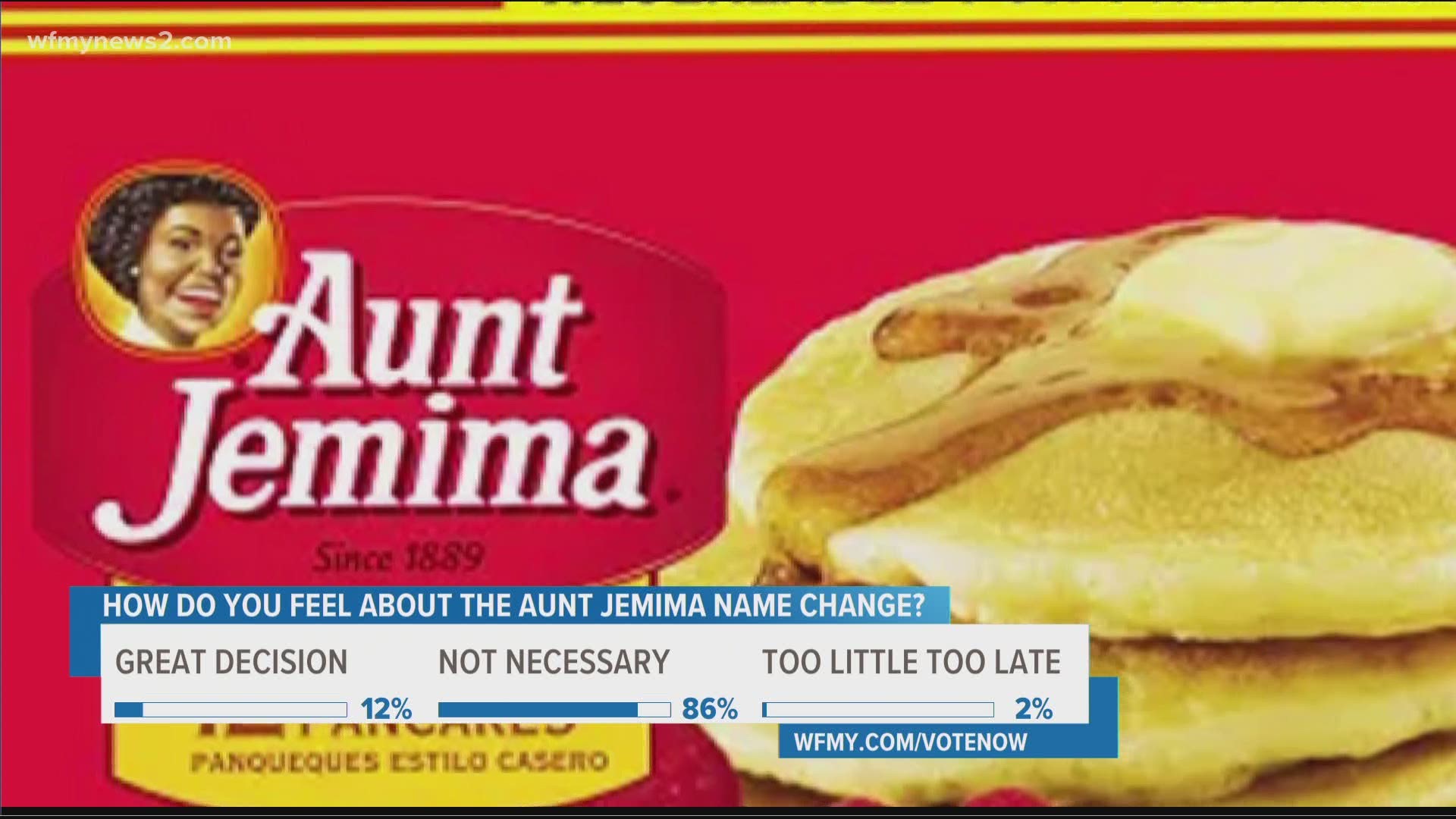GREENSBORO, N.C. — After Quaker Oats announced Wednesday its plans to replace the 130-year-old Aunt Jemima brand, social media had a lot to say. Some said the move came too late. Others said it’s just syrup and the decision is ridiculous.
No matter your opinion, it's important to know where Aunt Jemima came from.
For that answer, WFMY News 2’s Ben Briscoe reached out to historical experts at the International Civil Rights Center and Museum.
"Aunt Jemima is kind of the romanticized version of a house slave," LaTonya Wiley said.
She said smiling black woman on the bottle gives the wrong impression.
"It gives the notion that slaves were happy in their condition. It takes away the negativity that is usually associated with slavery. In turn, creates these individuals who were happy and docile in their enslavement," Wiley said.
It goes much deeper. Long before the syrup, Aunt Jemima was a character in traveling minstrel shows that became popular a few decades before the Civil War. In the shows, white actors would tour the country in blackface.
"They would paint their faces black, leaving out the eyes and lips. Sometimes going to the extent of outlining their lips in white to make them seem bulging and exaggerated. And they gave the most ignorant performances of all. Portraying black people to be lazy, to be ignorant, to be incompetent. To almost sometime be animalistic," Wiley said.
Those performances pushed the terrible idea that black people were inferior to white people.
"It gives people permission to degrade black people, to cast them in this light because if it's OK to sell a product with that image then it must be true," Wiley said.
A lot of people on our Facebook page said it's been this way for so long and asked why do we need to change it now?
That's the problem. It's been this way for so long. After a while people become comfortable with it.
We have to make changes somewhere and it seems trivial to change the face on a pancake box. It's those trivial things that lend to the minds of people who keep the connotation of what black people are and romanticizing an era that was one of brutality and enslavement for a group of people.

